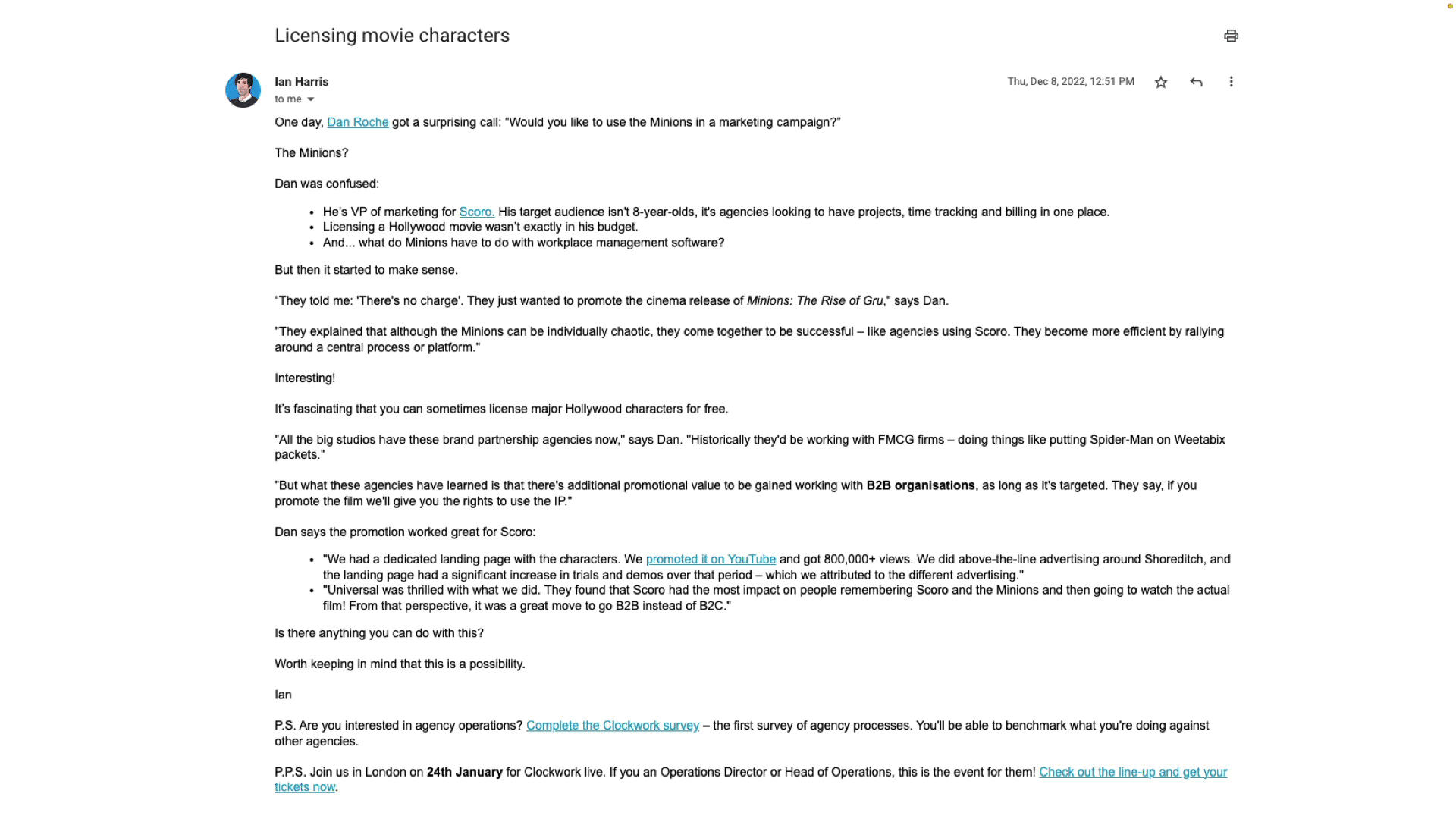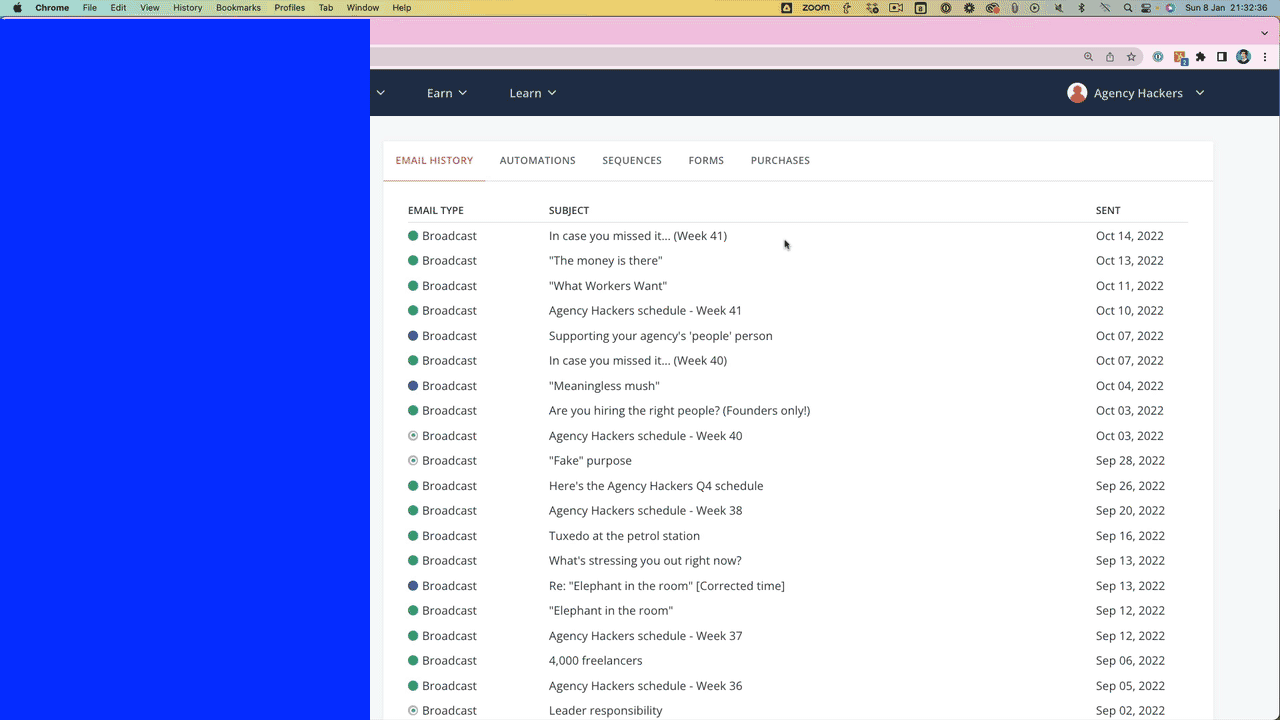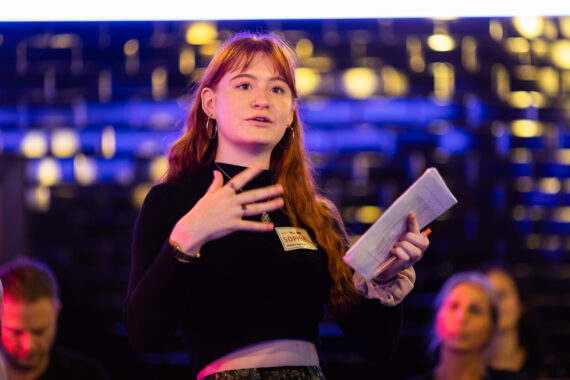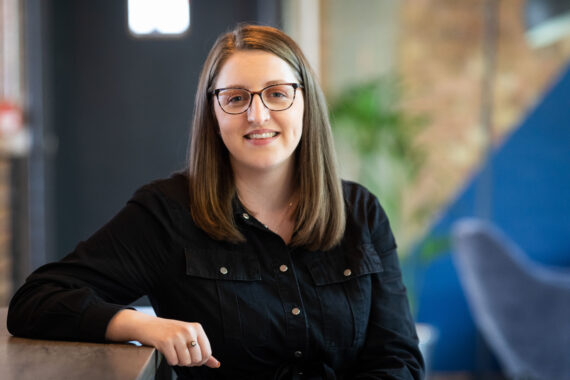After six years, the name we used to send emails will be Agency Hackers – not Ian Harris.
The content will still be the same. It probably seems indulgent to fuss over such a small, technical change to an email newsletter. But since people have been hearing from us for years, I thought you might be curious to hear why we’re doing this.
Especially since this is something that I previously said we’d never do!
First, a quick bit of background. When I started Agency Hackers in 2017, it was only an email newsletter. No website. No live events. No business at all. I was working in an agency, and I thought it would be fun to share interesting stories I’d heard about other agencies.
Of course, I knew that if it took off I’d be able to build a business on it and quit my job. And fortunately, it did take off – the emails attracted an audience and I was able to go full time on Agency Hackers (look at our live events line-up for 2023 – insane!).
For the past six years, our emails have kept a steady formula:
- They give you interesting little stories about other agencies. We want you to feel like you’re ‘peeping over the fence’ into other businesses.
- They look like actual emails, rather than HTML templates.
- The copy is simple and low syllable. (The syntax shouldn’t compete with the story.)
You might have noticed they have a few other key features, too:

The goal of each email is to entertain you enough to make you open the next one and continue the relationship. Over time, we should be able to monetise this relationship by offering you things you want.
So far, this email strategy has been quite successful:
- Our emails get an average open rate of 46.5%, which is quite high.
- People read them for years and years. Then – pow – suddenly become customers.
- This story-driven content attracts a thoughtful audience – people often comment on the mature vibe of our events, and I’m convinced that our writing style has a lot to do with this.
- Also, when I go to other people’s industry events (like the Podge dinners) people I’ve never met recognise me from my name badge.
We have people who’ve been hearing from me a couple of times a week for six years.
Look at this person (the owner of a large agency group). He’s engaged with six hundred emails over the past few years:
Sorry, this GIF is large – it will take a few seconds to load… 👇

That’s a lot of little ‘deposits’ in the relationship bank account with this person.
Right now, there are thousands of people just like this, who are all trained to get emails from Ian Harris.
So, why am I taking my name off this email?
Well, there are a couple of reasons:
1) It’s stalling growth.
It’s surprisingly hard to communicate to people why they should sign up to our newsletter, given that it doesn’t have a name. “Sign up to receive Ian’s emails” sounds naff. Once they start receiving it, the retention rate is very good – but positioning this has always been a big head-scratcher.
2) I don’t write them!
This is the main reason.
For about six months now, Kirstie and Sophie, our content team, have been ghostwriting them for me.

I love writing our newsletter, and I always felt that it was something only I could do. But it’s a lot of work to research and craft the stories – and as our business has grown I just don’t have the time and some weeks they began to slip.
So, part way through 2022, Kirstie and Sophie started ghostwriting them for me, staying true to our formula.
I think they have done a great job. Like most people who have a bit of an ‘artist streak’, I had wondered if I could ever let go of doing something I was so close to. But I did, and it was fine.
I still get in trouble for drizzling a bit of truffle oil on the plates before they leave the kitchen, but basically for a few months they’ve been writing them for me.

While they say they’re happy to ghostwrite, I would like them to have a platform too – they put a lot of work into the emails, and I’m the one who gets the credit.
That’s not to say there aren’t any risks.
One risk is that open rates might fall. I’ve always felt it’s better to send an email from a person rather than a brand. I still think it’s slightly more advantageous – people tend to open emails from people, rather than companies. But I hope that our content is strong enough to compensate for this.
Hopefully that was interesting. If you see our newsletter landing in your promotions tab (or your junk) it would be great if you can fish it out.
Thanks,
